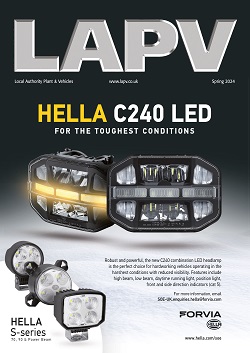Europe's first major class action related to public health and air pollution is underway in Antwerp, Belgium, asserting that the city's Low Emission Zone is detrimental to human health.
It's not technically a class action ' these are not currently possible in
Belgium ' rather a private association called City in Hand is grouping
individual claims together to demand that the City of Antwerp immediately
roll back its Low Emission Zone and reimburse fines issued to citizen for
unauthorised entry into the zone to the tune of 20 million Euros.
Central to the legal action by City in Hand is the argument that ultrafine
particles (UFPS) pose a far greater risk to human health than larger
particulates, such as PM10 and PM2.5. Furthermore, the association argues
that the main sources of UFPS are diesel regenerative particulate filters '
through the incineration of fine particulates that create UFPS ' and modern
petrol cars. It goes on to assert that, since NOx emissions from later diesel
engines (Euro 4,5, and 6) are not significantly lower than from older engines,
that all diesel engines should be considered equally harmful.
This argument is the basis of the association's demand to halt the city's Low
Emission Zone. LEZs are designed to reduce UFPS and improve air quality
and the Antwerp zone bans diesel cars below Euro 3 without a particulate
filter. An exemption can be purchased for Euro 2 cars or those more than 40
years old, and the purchase of a day pass allows unauthorised vehicles to
enter the zone a maximum of eight times per year. Fines of up to 350 Euros
are levied for zone violations and in 2017 alone Antwerp issued fines of at
least 12 million Euros.
This revenue excludes exemptions and day passes.
However, City in Hand argues that the study commissioned by Antwerp
to measure changes in air quality did not take into account the impact of the
LEZ on numbers of UFPS. It goes on to argue that road traffic accounts for
less than 10% of these pollutants in the city, that levels of NOx have not been
significantly reduced, and that the impact on air pollution of the city's industry,
harbour, and traffic on the country's most congested ring road overwhelms
any gains from the LEZ.
City in Hand doesn't stop there. The organisation asserts its belief that the
existence of the LEZ is actually more detrimental to human health than the
lack of one. This is because it requires the use of regenerative particulate
filters for older diesel cars, which City in Hand claims increase UFPS, and
allows access to modern petrol cars, which have also been identified as a
source of UFPS. Therefore, the legal action calls for an end to the LEZ in its
current form and reimbursement of fines on the basis that the government
should not earn money from what it calls a flawed project and that fining
owners of older diesel cars is discriminatory if, as it argues, they are not more
harmful than newer vehicles.
City in Hand is filing what amounts to a class action as it claims that
thousands of individual complaints have been ignored by the city. The
organisation is providing legal support and assistance to individuals who
believe they are entitled to reimbursement of fines or other expenses such as
the cost of installing regenerating particulate filters.

